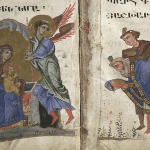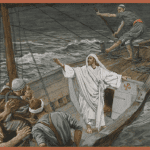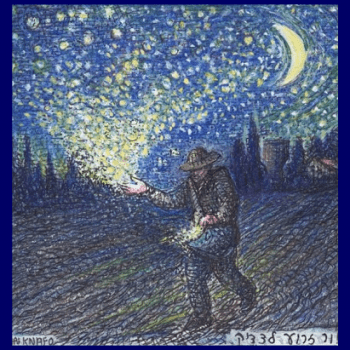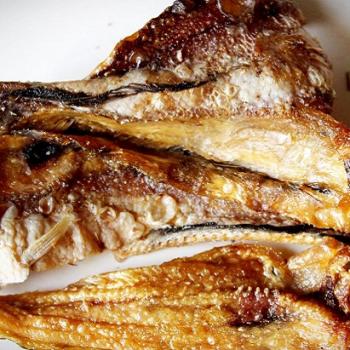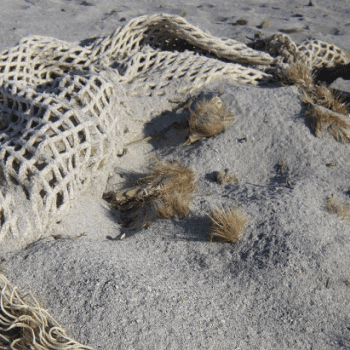Ongoing conversion is one of the vows of Benedictine monks,
but all persons who are mindful in following Christ
also seek their own ongoing conversion.

When Christ left the anonymity of Nazareth to start preaching, he began with a call to repentance, conversion, metanoia, a change of mind.
The Gospel reading at Mass for today, the Monday after Epiphany, is Matthew 4:12-17,23-25. It tells us:
Jesus began to preach and say,
“Repent, for the Kingdom of heaven is at hand.”
The heavenly Kingdom was at hand because Jesus was at hand. But the Kingdom’s presence and its coming are not yet finalized. So Jesus taught us to pray to our heavenly Father, “Thy kingdom come.”
And the Kingdom comes, that is, the King is at hand in any who are hungry, thirsty, strangers, naked, sick or in prison. In them the King wants our repentance: “Amen, I say to you, whatever you did for one of these least brothers of mine, you did for me” [Matthew 25:40].
The Kingdom is at hand whenever we receive an inspiration or call to offer God worship and prayer. To follow that inspiration or call is to repent. “Repent, for the Kingdom of heaven is at hand.”
When we turn and go to Mass, its introductory rites include a call to repentance.
Brothers and sisters, let us acknowledge our sins, and so prepare ourselves to celebrate the sacred mysteries.
We then answer that call by acknowledging a change of mind, a conversion, concerning what we have done or failed to do.
I confess to almighty God and to you, my brothers and sisters,
that I have greatly sinned,
in my thoughts and in my words,
in what I have done and in what I have failed to do,
through my fault, through my fault, through my most grievous fault….
Later in the Mass, we hand over bread and wine for the priest to set on the sacrificial altar. We then exchange words with the priest to uphold the offering of bread and wine as signs of our converting, turning, giving, sacrificing ourselves at the altar to God.
The priest urges us: “Pray, brothers and sisters, that my sacrifice and yours may be acceptable to God, the almighty Father.”
We answer: “May the Lord accept the sacrifice at your hands for the praise and glory of his name, for our good and the good of all his holy Church.”
Not long thereafter, the priest will lend his voice to the words of Christ inviting us yet again to conversion.
-
Take this, all of you, and eat of it:
for this is my Body which will be given up for you.Take this, all of you, and drink from it:
for this is the chalice of my Blood,
the Blood of the new and eternal covenant.
which will be poured out for you and for many
for the forgiveness of sins.
Do this in memory of me.
As the Mass continues, we come to the moment for praying as the Lord taught us.
Our Father, who art in heaven … forgive us our trespasses, as we forgive those who trespass against us….
Then the priest calls upon us to make peace with each other: “Let us offer each other the sign of peace.”
Finally, the moment comes for us to take, eat and drink the Body and Blood of Christ. So the priest will again call us to conversion.
Behold the Lamb of God,
behold him who takes away the sins of the world.
Blessed are those called to the supper of the Lamb.
Then we convert or turn to address the Lamb.
Lord, I am not worthy
that you should enter under my roof,
but only say the word
and my soul shall be healed.
In summary, honesty in taking part in the Mass, the celebration of the Eucharist, requires from us a spirit of heeding many calls to conversion, because the Lamb, the Lord and his Kingdom are at hand to enter under our roofs.
The day whose Mass crowns the whole year is Easter Sunday. There, in the Renewal of Baptismal Promises, we recommit solemnly to our conversion. We each answer, “I do,” as the priest asks us to renounce Satan and sin. Then, the priest asks if we do believe in God, namely, in the Father, in the Son and in the Holy Spirit. We each reply, “I do…. I do…. I do.”
The word “Mass” comes from the Latin word for “sending.” Thus, the Mass and its many calls for our conversion send us to fulfill the two great commandments on which depends the whole Word of the Lord in the law and the prophets.
Jesus said, “You shall love the Lord, your God, with all your heart, with all your soul, and with all your mind. This is the greatest and the first commandment. The second is like it: You shall love your neighbor as yourself. The whole law and the prophets depend on these two commandments.” [Matthew 22:37-40]
We Benedictine monks vow a life of ongoing conversion, but all Catholics vow the same by taking part in the Mass.
Ongoing Conversion: “Turn. Love. Repeat.”
Dear Readers of “Turn. Love. Repeat.”
California where I reside had a new law go into effect on January 1. California Assembly Bill 5 forbids freelance writers, editors and photographers from providing more than 35 content submissions to a media organization per year unless the organization hires the freelancer as a salaried employee. Patheos is a media organization, and I am a freelancer. So now I must limit my posts to 35 per year, or 1 post about every 10 days. So as not to exceed my limit here at Patheos, I will post my “extra” pieces at my own blog, Monk Notes.

